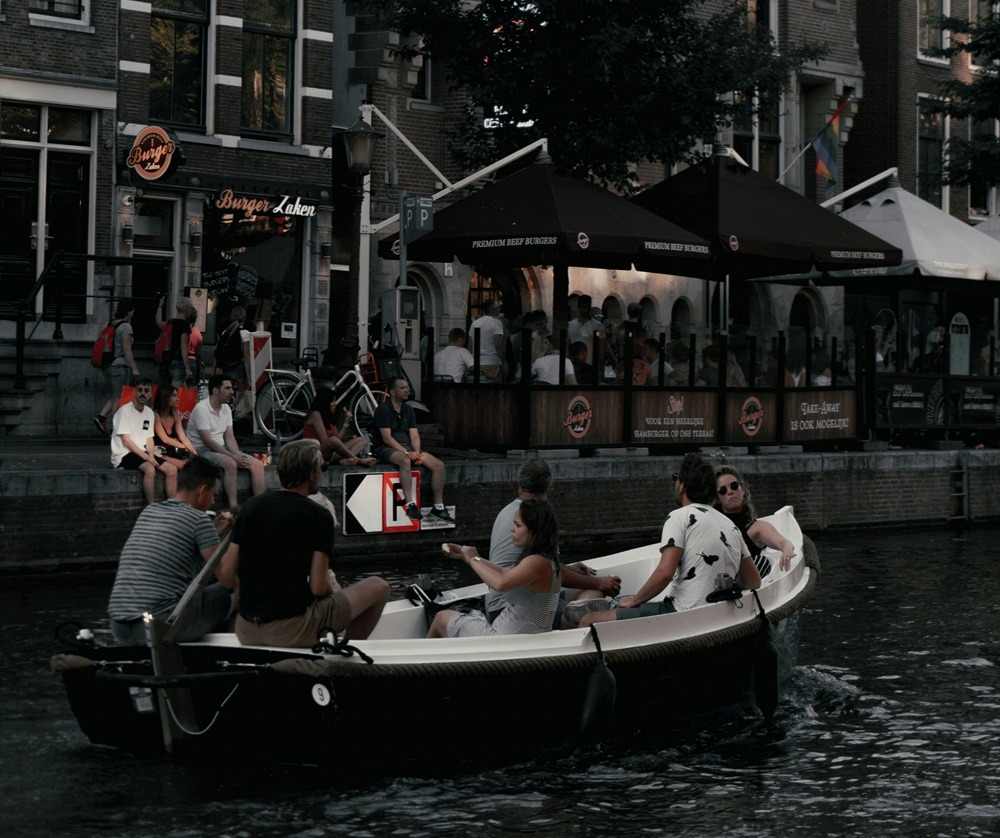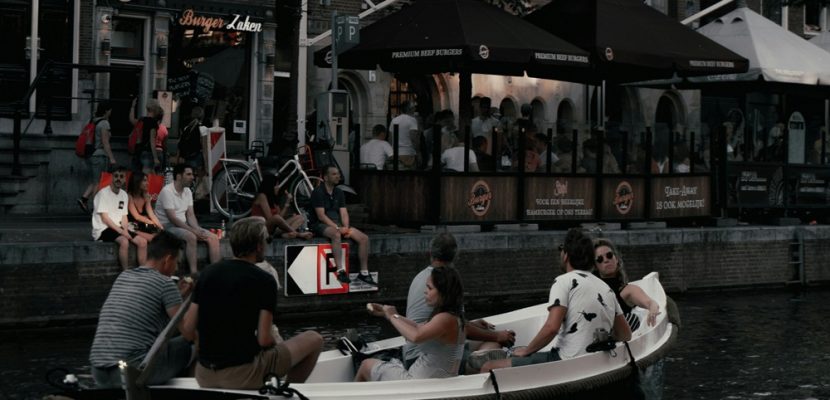Life as an Expat in Amsterdam: A Love-Hate Affair
Living as an expat in Amsterdam is a bit like starring in a surreal sitcom: canals everywhere, bicycles zipping past like caffeinated bullets, and rain that seems to have a personal vendetta against your hair. The first thing you realize is that owning a car here is practically heresy. The real locals scoff as you wheel your massive vehicle past a sleek row of bikes. Soon enough, you too become a cyclist, dodging trams, tourists, and the occasional rogue canal like a professional stunt performer—except without the fame, and with a very soggy coat.
Housing in Amsterdam, meanwhile, is a whole other adventure. You may dream of a cute canal-side apartment with a balcony overlooking the water, but your bank account will laugh at you. Instead, you’ll find yourself in a micro-apartment where the kitchen is bigger than the living room and your shower doubles as a wardrobe. Renting here is less about finding a home and more about proving how desperately you want to live in a city that looks like it’s straight out of a painting.
When you search for hotels just to try out Amsterdam, you need to first check our online map and search an area where you want to live.
Social life, too, has its quirks. The expat community is thriving, which is wonderful, until you realize every conversation is basically a remix of your own inner monologue: “I just moved here… I can’t find a decent apartment… Have you tried HEMA for everything?” The Dutch are friendly, efficient, and speak English better than most native speakers, but breaking into truly local social circles can feel like trying to decode an ancient puzzle while juggling Gouda. And speaking of Gouda, brace yourself: you’ll develop a strange and inexplicable habit of eating cheese at all hours of the day. Breakfast, lunch, and dinner will never be complete without a slice of something orange, hard, and deliciously aromatic.
Then there’s the weather. Sunshine in Amsterdam is rarer than a unicorn on a unicycle. The clouds hover permanently, the rain is always ready to surprise you, and the wind has an almost supernatural ability to ruin your carefully chosen outfit. Yet, in the midst of all this grayness, the cafés and coffee shops become sanctuaries where you can watch the world go by, sip a steaming drink, and convince yourself that you’ve adapted perfectly to this wet, whimsical city.
Ultimately, being an expat in Amsterdam means embracing a life that is equal parts chaotic and charming. You’ll ride your bike like a madman, survive rent prices that could make your accountant cry, eat cheese at inappropriate times, and perpetually explain how “back home” things were different. And yet, despite the soggy socks, cramped apartments, and endless rain, there’s a magic here that is hard to resist. Amsterdam has a way of making even the most frazzled expat feel at home, if only temporarily, between a tram ride and the next slice of Gouda.
bhawin-jagad-unsplash
What the Expat Community Looks Like in Amsterdam
- Highly International & Diverse
- Expats in Amsterdam come from many different countries — there are over 180 nationalities represented in the city. Expatica
- Because of that, the expat community is pretty cosmopolitan and multicultural.
- Strong Social Infrastructure
- There are lots of social groups, clubs, and meetups specifically for expats. For example, the “Amsterdam Expat Meetup Group” on Meetup has tens of thousands of members. Meetup
- Organizations like AIC Expat run many events (daytime, nightlife) and have a network of thousands of internationals. aicexpat.nl
- These social hubs make it easier to meet people, especially when you’re new in town. Beyond Borders+1
- Variety in Neighborhoods
- Expats don’t all live in one “international ghetto”; they’re spread out across several neighborhoods. Orange Quarter+1
- Popular areas for expats include:
- De Pijp: very vibrant, multicultural. amsterdamlifehomes.com+1
- Jordaan: charming historic district. amsterdamlifehomes.com
- Buitenveldert: more family-friendly. Foyer Global Health
- Also emerging: neighborhoods like Noord or Oost, depending on your lifestyle and budget. Orange Quarter
- Work & Economic Influence
- Amsterdam’s international community is partly driven by “knowledge migrants”: people coming for skilled work, especially in tech, creative, or corporate sectors. DutchNews.nl
- The city has made efforts to attract foreign companies, which bolsters expat demand and presence. DutchNews.nl
- Some expats benefit from specific tax schemes (like the 30% ruling) that make relocating more financially attractive. DutchNews.nl
- Language & Integration
- Many Dutch people speak English, so you can get by without speaking Dutch — especially in professional and expat circles. Foyer Global Health
- But: for deeper social integration, learning Dutch helps. amsterdamlifehomes.com+1
- Some expats say there’s a “glass cage”: they don’t always feel fully integrated with local Dutch communities. DutchNews.nl
- Cultural differences do come up. For example: social customs, how friendships form, or neighborhood dynamics. > > “Many expats feel that they have hit a wall with Amsterdammers … Amsterdammers are said to have close-knit groups of friends that they just can’t get into.” Reddit
- Family & Education
- For expat families, there are good international schooling options. The Amsterdam International Community School (AICS) is an example. Wikipedia
- There are green areas, parks, and family-friendly neighborhoods, so life can feel stable and high-quality. amsterdamlifehomes.com
- Healthcare is good, and many doctors speak English. amsterdamlifehomes.com
- Challenges & Criticism
- Housing is a big pain point. Expats often compete for housing in expensive areas, and there’s tension around how expats drive up demand. DutchNews.nl
- Some locals worry about expats transforming neighborhoods, while some expats feel socially isolated from Dutch circles. Reddit+1
- While there are lots of expat groups, that can also lead to “parallel social lives” where expats mostly hang out with other expats.
My Overall Impression
- Very active & supportive expat community: If you move to Amsterdam, you’re unlikely to feel completely alone — there are many ways to connect.
- Good for careers: Especially attractive for professionals in international or high-skilled sectors.
- Integration takes effort: You can live in “expat mode,” but building local friendships and really integrating requires more than just speaking English.
- Trade-offs: High quality of life, but also higher cost of living and potential social tension.



